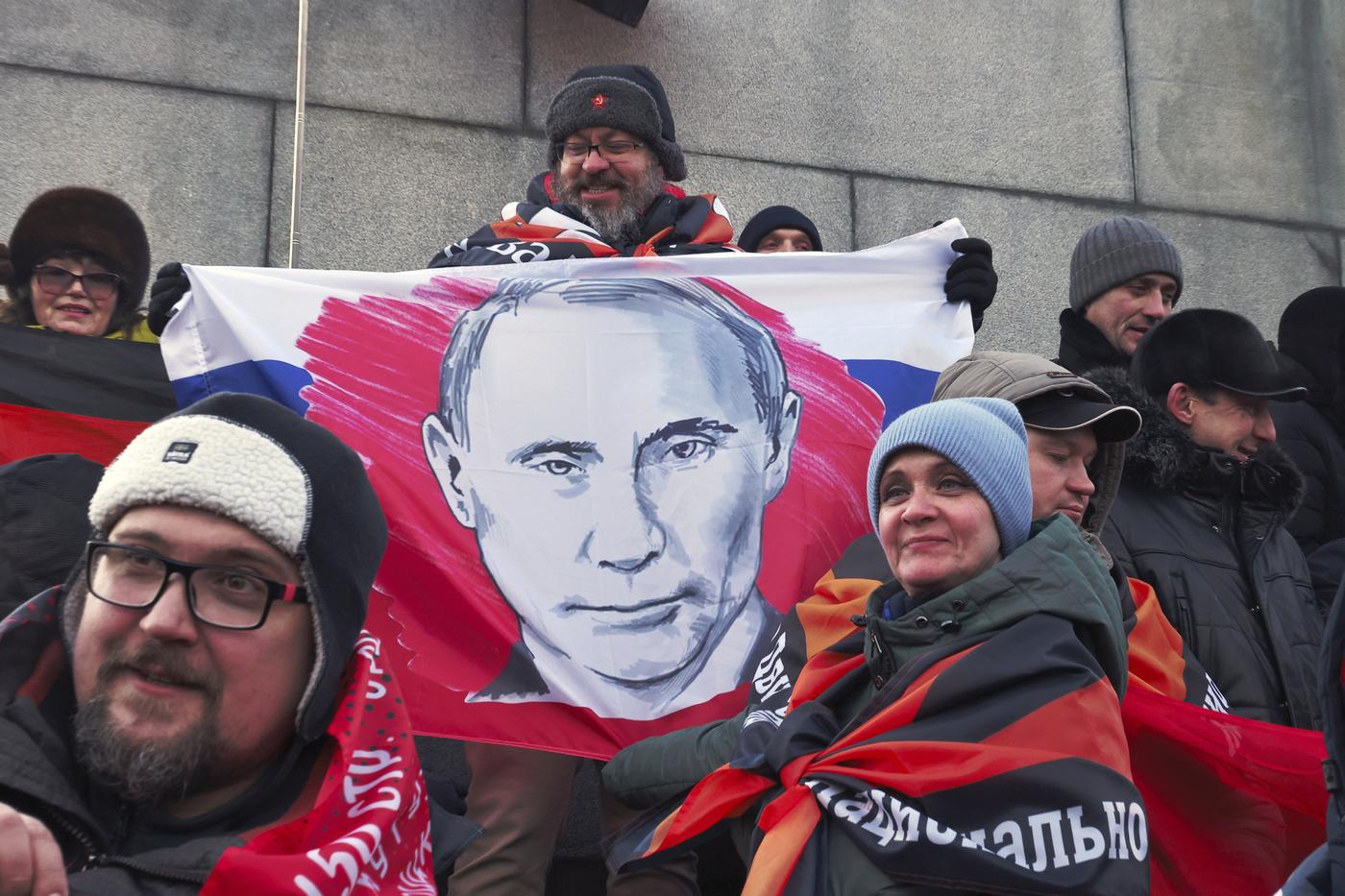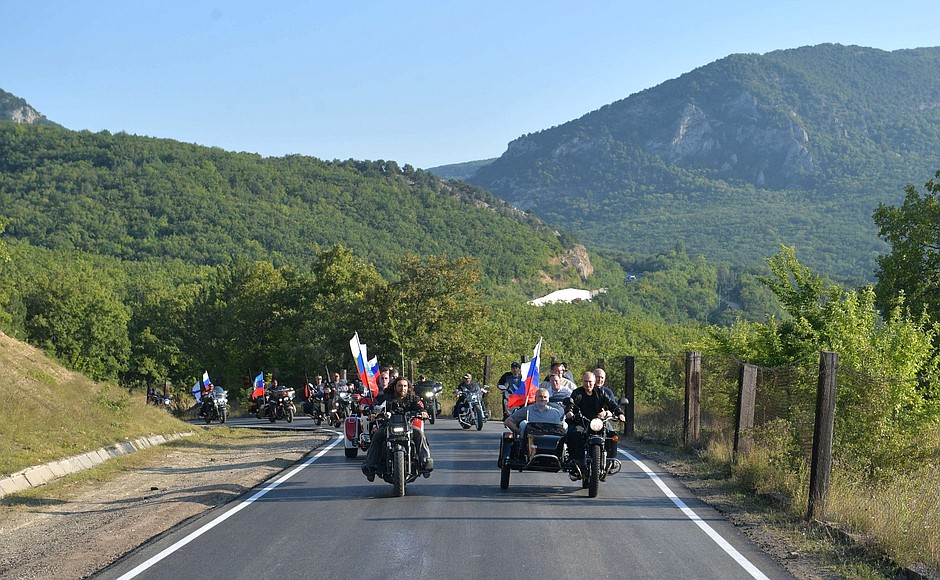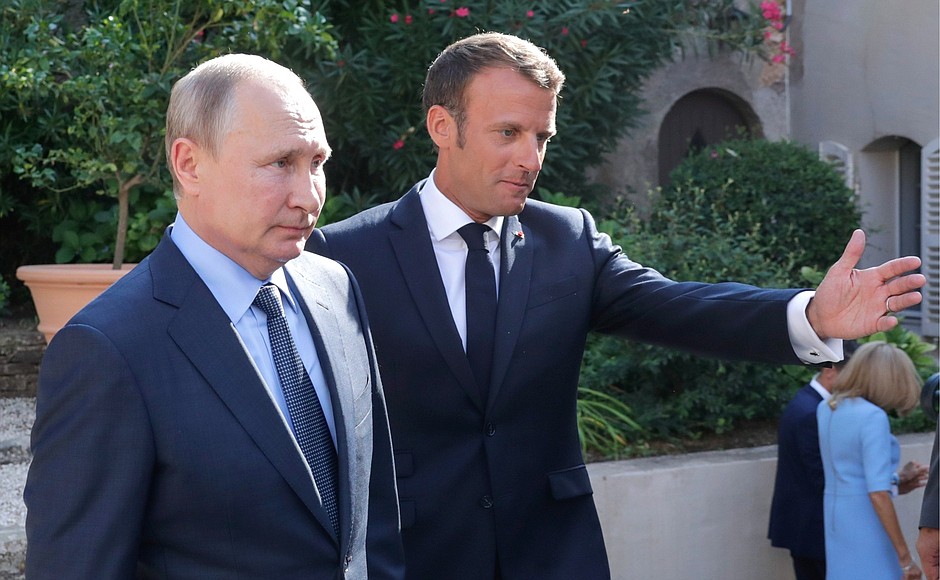Donald Trump is not an ideologue. I believe big ideas or big questions never interested him. He is more of an opportunist who utilizes ideas — to the extent he is capable of understanding them. During his second term, he relies on ideas more than during his first term, when he relied mostly on conspiracy theories.
As a political animal with strong instincts, he feels that ideologies have more power to consolidate his power. That is why he has decided to create ample room around himself for various ideologues who have big ideas and look for opportunities to test them in real politics. Two opportunisms, thus, meet together and drive Trump’s policies.
Ideologues crowding around Trump represent varying lines and trends: neoconservative, libertarian, post-liberal, etc. Their common denominator is a vigorous opposition to liberalism, which they identify, somehow confusingly, with the Democratic Party. They all are also “culture wars” warriors determined to win these wars, whatever it takes, and showing no mercy to their ideological enemies. Most of them are “burned out” liberals.
In the words of Curtis Yarvin, they are “dark elves” who became disappointed in their “elvish” liberal ideals.
Trump's ideologues are "dark elves" who became disappointed in their "elvish" liberal ideas
For some of them, liberal democracy is damaged beyond repair. They have problems not only with “liberal” but also with “democracy.” They feel uneasy with republicanism in its original sense, as res publica, i.e., a thing when public opinion directs decision-making.
They are more into the managerial governance model, where executive offices make efficient decisions on behalf of their corporations. Citizens, for them, turn to employees.
Some others, including Trump himself, want to see citizens as subjects. If they knew about the ancient Greek concept of a sovereign as empsychos nomos, they would have gladly identified themselves with it. This phrase literally means “ensouled law” and implies that a sovereign, who could be called king, emperor, basileus, or merely the “first among equals” (primus inter pares), is himself the law above all written laws.
Such an idea of sovereignty was borrowed from Antiquity and applied to modern times by the German scholar of Roman law Carl Schmitt (1888-1985).
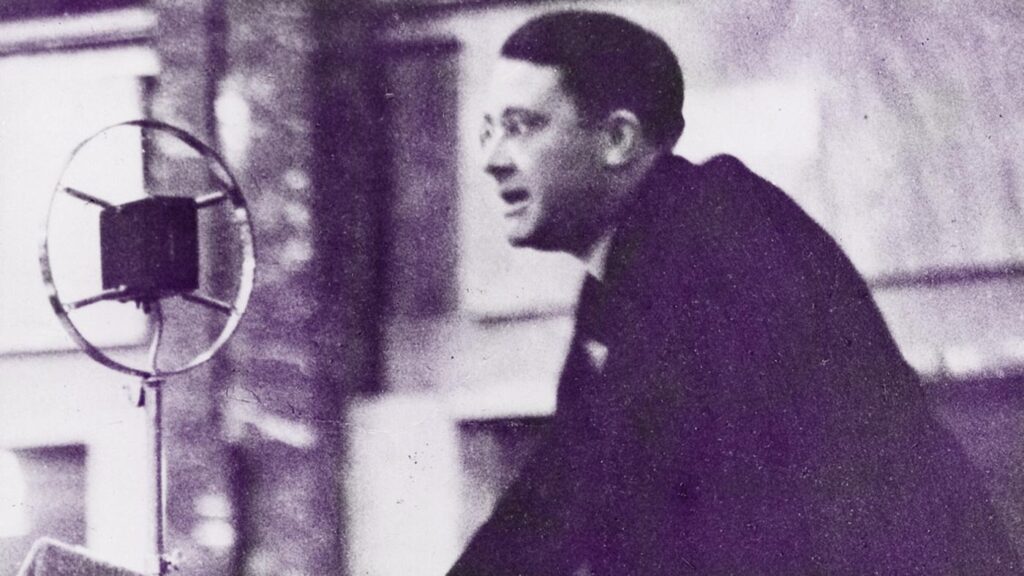
When Adolf Hitler won in 1933 democratic elections according to the Constitution and was appointed by President Paul von Hindenburg as the Weimar Republic’s chancellor, he faced restrictions by both the Constitution and the presidential office.
Carl Schmitt brought up legal, historical, and theological arguments why he should be liberated from these restrictions. His theories provided critical intellectual justification for the Enabling Act of 1933, which effectively dissolved constitutional constraints and allowed Hitler to rule by decree, transforming Germany from a democracy into a dictatorship."
The Enabling Act of 1933 allowed the Reich government to issue laws without the consent of Germany's parliament, laying the foundation for the complete Nazification of German society. Here, Reich Chancellor Adolf Hitler is shown during the justification of the Enabling Act in the new Reichstag. Photo: Bundesarhiv
Schmitt’s arguments can be best summarized by Donald Trump’s dictum: “He who saves his Country does not violate any Law.”
There is not just a hypothetical but an actual bridge between Schmitt and Trump. Yale constitutional law scholar Paul Kahn and his teaching assistant J.D. Vance are two bridge piles.
Kahn rehabilitated and tuned up some of Schmitt’s ideas for the American intellectual circles. He apparently did not intend to rehabilitate Schmitt himself, who was an early member of NSDAP and never repented for supporting Nazism, but Kahn believes that some of Schmitt’s ideas could help correct American liberalism.
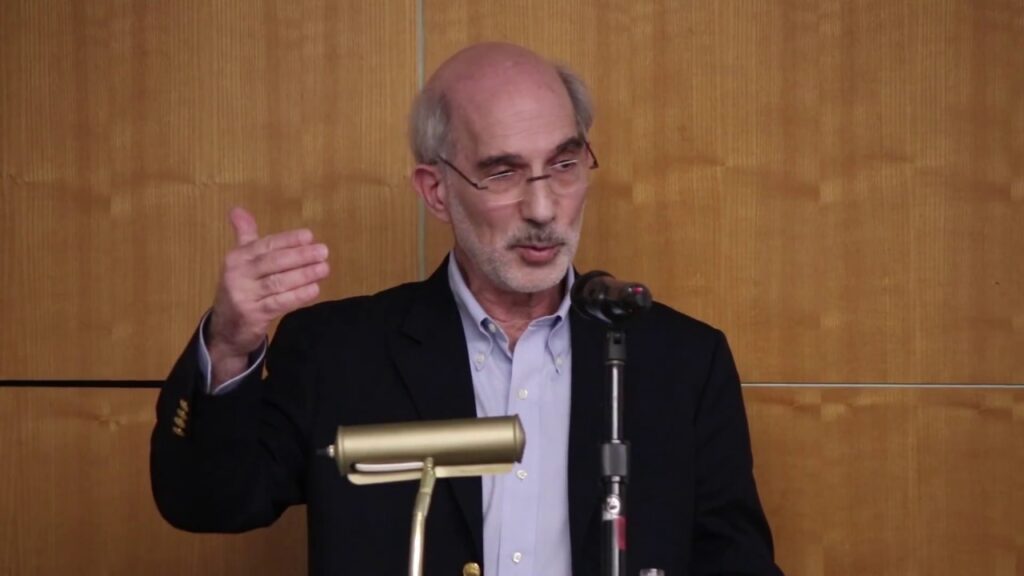
As we can see, these ideas are gaining momentum to facilitate dismantling not just American liberalism but American statehood per se.
Kahn’s assistant, who happened to be elected the US Vice-President, channelled these and other similar ideas to the Oval Office.
In contrast to its holder, J.D. Vance is an ideologist. He understands ideas, becomes enchanted by them, and knows how to translate them to policies. This does not necessarily mean that he can produce his own ideas. In Ancient Greece, there were two most important intellectual roles: a philosopher and a rhetorician. Vance is a rhetorician, not a philosopher. Trump is neither of them.
Vance is a rhetorician, not a philosopher. Trump is neither of them.
In Ancient Greece, philosophy, including its political aspects, was never detached from theology. According to Augustine, the Roman philosopher Varro (116-27 BC) even coined the phrase “political theology.”
When converted to Roman Catholicism, J.D. Vance declared Augustine his patron Saint. Augustine is believed to be the father of classical Christian political theology. However, Vance’s own “political theology” seems to be more in line with Schmitt than with Augustine. The same applies to other political philosophers/theologians whose ideas have contributed to Trumpism.
They, including Vance, claim that they represent Catholic or Protestant or Orthodox theological traditions, but in fact, in my opinion, they propagate what can be called “Political Catholicism,” “Political Protestantism,” and “Political Orthodoxy.”
I studied “Political Orthodoxies” and its contribution to the rise of Putinism. I now see a similar pattern of political Christianities contributing to the rise of Trumpism. They all adjust theological ideas to authoritarian power models.
For example, the scriptural imagery of katechon became central to how Putin’s authority is interpreted in Russia. This term literally means “the one who restrains.” In Christian theology, particularly in the New Testament, the term appears in 2 Thessalonians 2:6-7, where it refers to a force or entity that restrains the arrival of the Antichrist and the end times. It was applied by the Byzantine court theologians to stress the unparalleled authority of basileuses as “ensouled laws.”
Putin's court theologians present Putin as a katechon, a global sovereign exempted from common law. I will not be surprised if Trump's theologians will do the same.
Putin’s court theologians apply this term to their boss, presenting him as a global sovereign exempted from common law, who is called to restore the global order to what it is intended by God himself. Karl Schmitt used the same term in his political theology, in a similar sense. I will not be surprised when Trump’s court theologians will eventually apply it to their boss. I already read some Russian Z-theologians fearing that “the US has intercepted the Russian agenda of katechon.”
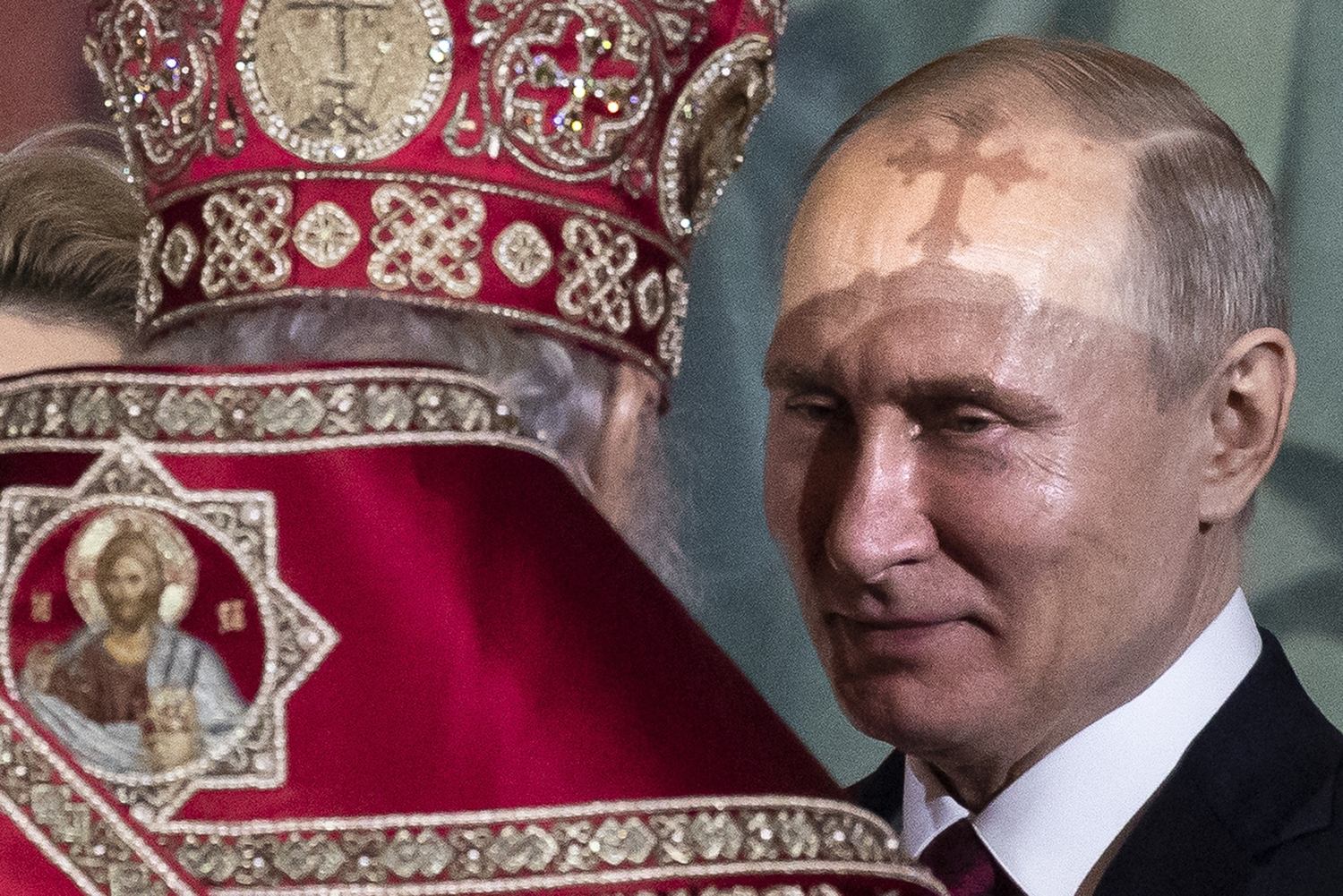
Theologian: Russian Church goes full Nazi with “holy war” on Ukraine
Another of Putin’s ideas with Byzantine roots, that of symphonia between the church and the state, gains momentum in the new US establishment. It originally implied a privileged position of the Christian church in the Roman Empire. In exchange for privileges, the church boosted the emperors’ legitimacy.
So the Russian Orthodox Church does to Vladimir Putin. Those American Christians who boost Trump’s legitimacy also hope for a sort of symphonia, even though they do not yet call it so. They aspire for the de-secularization of the American state. It is one of the goals of their “culture wars” mentioned earlier.
Vladimir Putin also fights his culture wars. However, they are different from their American prototype.
In the United States, “culture wars” have not yet turned into a real war, while this is precisely what has happened in Russia. Russian aggression against Ukraine is essentially a culture war. The justification for this war in the Russian narratives constantly changes, but more or less stable points are characteristic also of American culture wars: ideology and identity.
Putin’s war is a violent form of American culture wars, with their dichotomization between “liberal” and “conservative” ideologies.
Russian war propagandists claim that they invaded Ukraine to fight Western liberalism and Ukrainian identity. Therefore, by the way, Putin promotes ethnic Ukrainians with Russian identity to key positions—from negotiators to generals. He thereby wants to show that those who, in his view, are “real” Ukrainians cannot have their own identity different from Russian. Putin and his propagandists equate Ukrainian identity with Russophobia.
Thus, Putin’s war is a violent form of American culture wars, with their dichotomization between “liberal” and “conservative” ideologies. This is not the first time that Russia has borrowed Western ideological schemes and turned them into weapons. The most striking example is Soviet Communism. It took as its basis Karl Marx’s ideas and their interpretation by Western socialism theorists and established a totalitarian regime that caused a bloody bath for its own and neighboring peoples.
As Lenin and Stalin once did, Putin took Western ideas and turned them into extreme violence. Similarly, Hitler took ideas of nationalism that had been popular in Europe since the 19th century and turned them into the Holocaust.
Ukraine was repeatedly a victim of Western ideas that Russian rulers had taken up as weapons.
During Lenin’s rule, it was occupied based on socialist internationalism. Stalin arranged a mass famine, the Holodomor, guided by Marxist ideas about the counter-revolutionary nature of peasantry. Now, Putin is waging a war to destroy Ukraine inspired by American “culture wars.”
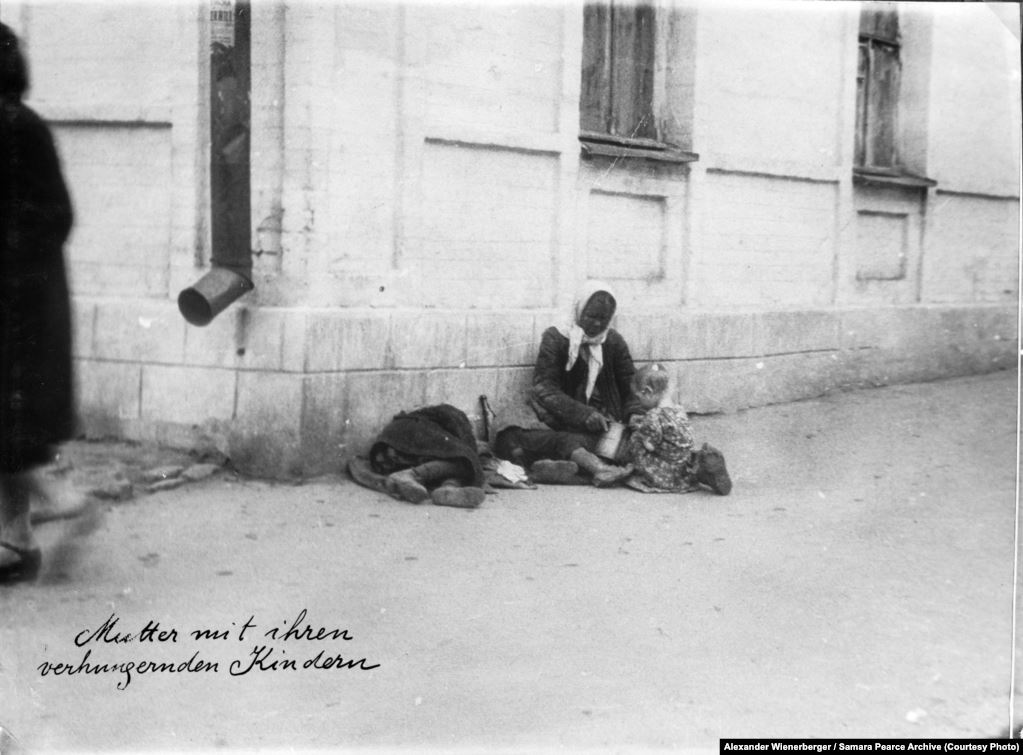
That is why many Americans who are at the forefront of their “culture wars” have such irresistible sympathies for Putinism. This enhances the bond between Putinism and Trumpism, which share the same DNA.
A presentation delivered at “Political Theologies of a Democratic Common Life” workshop New College, Oxford, on 24-26 March 2025
Editor's note. The opinions expressed in our Opinion section belong to their authors. Euromaidan Press' editorial team may or may not share them.
Submit an opinion to Euromaidan Press

